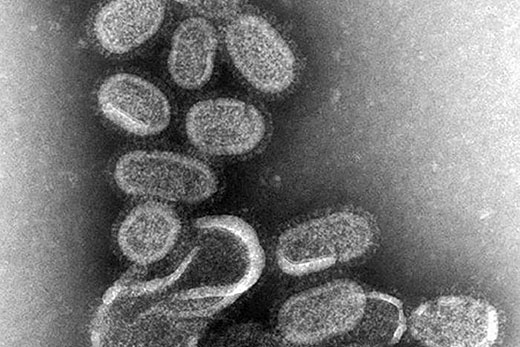Mutations of some strains of influenza mean flu vaccines will be delayed by three weeks this year.
The influenza virus, magnified about 100,000 times.
Vaccinations normally start in early March, but two new strains discovered means the schedule will be pushed back.
National Influenza Specialist Group spokesman and clinical virologist Lance Jennings says the complex manufacturing process will take longer than normal.
He expects the delay would have minimal impact.
'It will take time to get a consistent supply for New Zealand.”
Influenza, commonly known as the flu, is an infectious disease caused by the influenza virus.
Symptoms include a high fever, runny nose, sore throat, muscle pains, headache, coughing and feeling tired.
These symptoms typically begin two days after exposure to the virus and most cases last about a week.
The influenza virus continually evolves and is reviewed twice a year after winter recommendations from the World Health Organisation.
The flu vaccine had three components - two influenza A strains and one B strain - selected each year to match the strains predicted to strike. This year's vaccine for the southern hemisphere was selected in October, and includes A/Californian/7/2009 (H1N1)-like virus, A/Switzerland/9715293/2013 (H3N2)-like virus, and B/Phuket/3073/2013-like virus.
The A/Switzerland and B/Phuket strains are the new ones.
Lance says the current bad flu season in the United States and Europe had been caused by a 'drifted” influenza A (H3N2) strain of the virus, which had not been included in the northern hemisphere vaccine.
'The strain was in New Zealand in the later part of the winter last year, so we have been exposed to it. The vaccine currently being formulated should provide good protection against the H3N2 strain.”



0 comments
Leave a Comment
You must be logged in to make a comment.